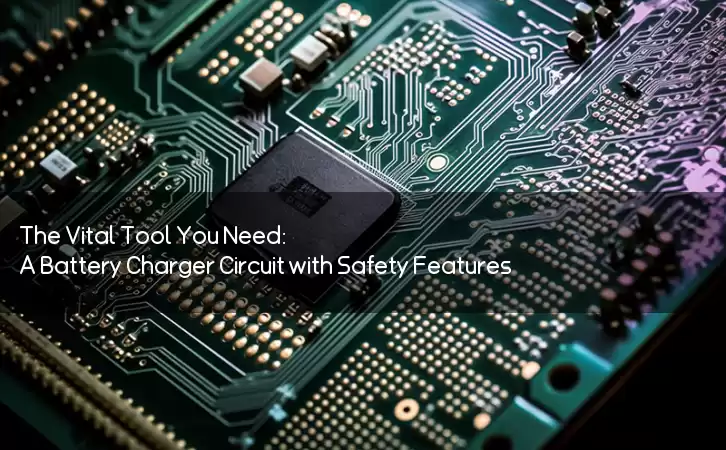Information Center
The Vital Tool You Need: A Battery Charger Circuit with Safety Features
Published:2023-06-30 10:35:17 Author:Green WCND Views:56A battery charger circuit is a system that is used to charge batteries. It is an electronic device that is designed to convert AC voltage from the mains into a DC voltage that is suitable for charging batteries. There are different types of battery charger circuits, each designed to work with specific types of batteries.

One of the most common types of battery charger circuit is the lead-acid battery charger. Lead-acid batteries are commonly used in cars, motorcycles, and other vehicles. These batteries can be charged using a charger circuit that is specially designed for them. Lead-acid battery chargers are generally designed to deliver a constant current to the battery, with the voltage being monitored and adjusted as necessary to ensure that the battery is charged safely and efficiently.

Another type of battery charger circuit is the lithium-ion battery charger. Lithium-ion batteries are commonly used in cell phones, laptops, and other portable electronics. These batteries require a specific charging profile to ensure that they are charged safely and efficiently. Lithium-ion battery chargers are designed to deliver a constant current to the battery, with the voltage being monitored and adjusted as necessary to ensure that the battery is charged safely and efficiently.
The main components of a battery charger circuit include a transformer, a bridge rectifier, a smoothing capacitor, a regulator circuit, and a relay or other switching device. The transformer is used to step down the AC voltage from the mains to a lower voltage that is suitable for charging the battery. The bridge rectifier is used to convert the AC voltage into a DC voltage. The smoothing capacitor is used to remove any ripple from the DC voltage, ensuring that it is stable and free from interference. The regulator circuit ensures that the voltage delivered to the battery is constant and within safe limits, while the switching device is used to turn the charger on and off as needed to prevent overcharging.
In addition to these components, battery charger circuits may also include additional features such as overcharge protection, reverse polarity protection, and short circuit protection. These features are designed to ensure that the battery is charged safely and efficiently, and that there is no risk of damage to the battery or the charger itself.
In conclusion, a battery charger circuit is an essential tool for anyone who needs to charge batteries on a regular basis. Whether you are a mechanic, an electronics hobbyist, or a homeowner with a collection of rechargeable batteries, a battery charger circuit can help you keep your batteries charged and ready for use at all times. With the right charger circuit and some basic knowledge of electronics, you can ensure that your batteries are always in good condition and ready when you need them.
Power Adapter Design and Customization Guide for Portable Electric KettlesI. Common Design Types for Portable Electric Kettle Power AdaptersPortable electric ke···
I. Common Design Types of Power Adapters External Independent Type (Most Common) Design: A standalone adapter (e.g., "black brick") connected to the p···
Handheld Vacuum Cleaner Power Adapter Selection GuideIntroductionHandheld vacuum cleaners have become a mainstream tool for household cleaning due to their port···
Drill Power Adapter Selection Guide.drill-container { font-family: Arial, sans-serif; line-height: 1.6; max-width: 800px; margin: 0 auto; padding: 20px; } .dril···





